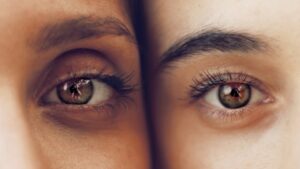Most people highly value their eyesight; our eyes are a major part of how we interact with the world. Beyond this, they're a huge part of how we interact with and connect with other people and animals. Despite this, many people aren't putting in a concerted effort to protect their eyes or to keep their eyesight high-functioning for years to come. The following seeks to remedy that by exploring a few tips that you can employ to help keep your eyes protected and healthy.
Eat For Your Eyes
What you eat can affect what you see. There are a handful of vitamins and minerals that are desperately needed if you're going to avoid cataracts (cloudy areas in the eye lens that reduce visibility) and age-related macular degeneration (a condition that results from age that causes vision loss). Make sure you're seeking out whole food sources of vitamins A, C, and E as well as the mineral zinc on a regular basis.
Beyond this, the retina and especially the macula part of your eye seem to be incredibly sensitive to oxidative stress. This means that antioxidants are your new best friend. Look for whole food sources of lutein and zeaxanthin, which are both carotenoids. They can be found in dark leafy greens, summer squash, pumpkin, brussels sprouts, broccoli, carrots, and pistachios. It is worth noting that both of these vital antioxidants are fat-soluble, which means that you need healthy fats within your system in order to absorb them and use them within your body. Pair whole foods with healthy oils like olive or coconut or nuts, avocados, or nuts like almonds (peanuts do not count; they're not technically nuts).
Understand Blue Light
Blue light is the light that's emitted from technological devices like your work computer, television, cell phone, and laptop. Many devices emit a little bit of blue light even when they're off. This light damages your eyes and messes with your natural circadian rhythm, which, in turn, damages sleep, hormones, energy levels, appetite, weight gain, and work performance. Yes, that's a widespread list that can result in a positive influence or negative influence on pretty much every area of your life. To protect your eyes from blue light, you can either become a hermit in the woods with no technology or find yourself a pair of glasses that block blue light. Professionals at Baxter Blue emphasize that blue light protection should be part of everyone's self-care and wellness practices. Even if you don't need prescription glasses, you can find blue light glasses. It's extra important to wear them any time you're facing a screen while it's dark outside.
Complete Eye Exercises
Yes, you read that correctly, eye exercises are a thing, and they can help protect your vision for years to come (and some help reduce the appearance of aging around the eyes). Finding a few minutes for eye exercises every day can help protect your eyes from damage, improve your vision, give your eyes a much-needed rest, and reduce age-related appearance issues surrounding the eye area. It's important that you start really small and gradually work your way up to a few full minutes as, at first, eye exercises can strain the muscles around your eyes, leaving you feeling tired or uncomfortable. These are especially important if you're staring at something close to you, like a computer screen, all day at work.
Think About UV Protection
Finally, you also need to think about the impact the sun has on your eyes. UV rays are no joke; they can result in some serious health problems later on in life. Of course, when it comes to sensitive eye areas, sunscreens are usually not recommended as they can sting the eyes. Beyond this, most sunscreens are chocked full of toxic chemicals that can contribute to a whole slew of different health problems. A better solution would be to seek out a good pair of high-quality sunglasses that can help protect your eyes as you go about your day. This is especially important for people who drive often. If you notice yourself squinting to see in the bright sunlight, it's probably a good idea to put some sunglasses on.
The above information should have given you a few crucial tips that can help protect your eyes for years to come. Each of these points works wonders alone, but when all four are combined, they can provide your eyes with what they need to keep connecting you to the world and the people within it. Of course, if you're noticing something specific like pain, strain, soreness, vision changes, or headaches, you might also want to speak to an eye specialist. There could be a condition you've been dealing with without even knowing about it.


